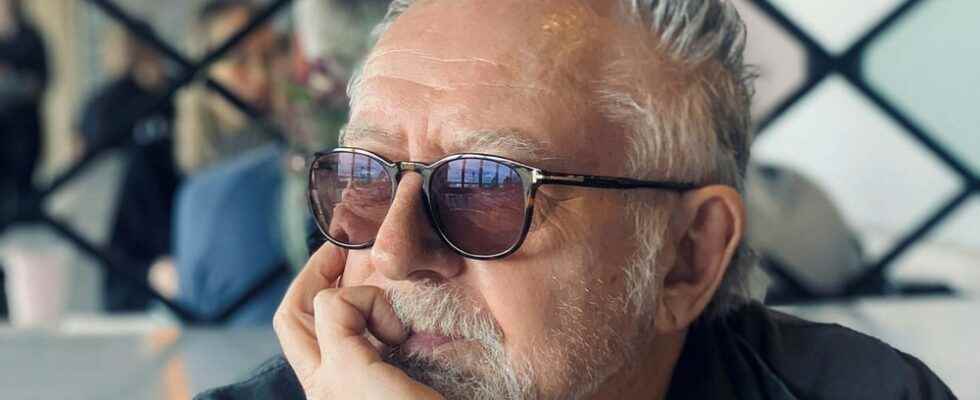Diaries
Ulf Lundell
“Weekdays 6”
Wahlström & Widstrand, 687 pages
“Weekdays 7”
Wahlström & Widstrand, 451 pages
Show more
On September 9, 2020, it shakes in Ulf Lundell’s diary. This is when a certain N appears, who has courted Lundell by e-mail and who, after much hesitation, has decided to date. It’s as if some science fiction director devised a screenplay based on the old what if recipe – what would happen if you threw a lesbian astronaut into the Ming Dynasty China, a wildly alien element in a closed world that worships the unchanging?
I will not hide that it makes me as a reader sit up on the couch and expectantly prick up my ears. No matter how much one appreciates the cheerful bitterness or bitter cheerfulness that makes up the unique atmosphere of Lundelland, no matter how much one appreciates the disarming honesty and the comically inflated anger in the leisurely conversational poetic passages that make up these diaries, it can still be a bit tiring to inhale the same atmosphere in the 1148 pages these last two Everyday Volumes make up. In particular as they are part 6 and 7 of a series of manifestations of this by now more than familiar atmosphere.
Sure, Jack has become grizzled. Aging has its rightful place in an everyday life whose columnist has reached the age of seventy. You wake up at five in the morning with low back pain and immediately start thinking about the idiot to broadband provider. You start walking with poles. You pee in the car. You get hooked on the fact that Craft’s long underwear hangs halfway down the hedge. On the other hand, it is suspected that Ulf Lundell has ALWAYS been hooked on the fact that Craft’s long underwear hangs halfway down the hedge. If it is true that all people have a certain age that is really theirs, there is much to suggest that Ulf Lundell has always been 71 years old.
And if one similarly imagines that some people need certain given situations to become themselves (much as it is said that Winston Churchill only worked in wartime), it is difficult to free oneself from the feeling that Ulf Lundell and the pandemic that is going on while these diaries written are as made for each other. Here you can isolate yourself from your fellow human beings to the exact degree you want and still scold people who are too close to you in Ica and tease idiots who think things about the Swedish pandemic management in articles you still can not help but read .
This does not say Lundell himself, of course. Too deep self-analysis is not his thing. You are who you are, there is nothing to root for. The contact with children and grandchildren is bad, it has become as it has become. Sometimes the thought comes – “thought of such a thing last night: that I do not like / myself in belonging to others, who I become” – but it is as it is. “The skull is constantly haunting, but it’s just like that / it’s to be human.” That’s why Lundell is so beloved, much like Leif GW: safe old stumps to have on the lot.
The advantage is an unmistakable bullshit detector. Here, no one goes on intellectual spells, whether they come from Marxists, postmodernists, neoliberals and identity politicians. Society should be damn decent, people should be damn good.
“I am FOR the fight for a tolerable socialism / AGAINST crazy free-running capitalism”. The Sweden Democrats are one fucking ace, but they are also gang criminals: “Maybe we should deploy the military and smoke them out here / the clans, the families, show evidence of a little seriousness / Put them in camp and sort out the concepts.” You want gray sauce Sweden back, but you do not really believe in it. You grow a bitter expectation that everything will go to the pipe turn and it earns a good sometimes, as Magdalena Andersson would have put it – Lundell turns off the TV already when Ukraine makes 1-0 against Sweden in the European Championship match this summer and is saved thus the traumatic end.
It is on the other hand the trait that causes complications when this “N” comes into the picture. Here there is no remote control with shut-off button, no matter how much you want that thing sometimes. In one second you are “confused, rebuilt, disarmed, fulfilled / horny, man and child at the same time”. In the next: “My brain is not made for relationships, I mutter / by the gray sea, light southeast wind.” N is sometimes a welcome and appreciated guest on the farm, like the blackbird and the mosquito, sometimes a threatening intruder, like the stone marten or the most hated of all birds, the raven (“hell bird”, “drug gangster”). When volume seven ends, she is still in the picture, despite the fact that there have been many rounds in the relationship carousel.
But it is hard to believe that she will be able to seriously upset the order in Lundelland. “You do not ‘rest’ with a woman, about whom so much is sung / You rest for a while, then it becomes shaky / Do you then rest alone in ‘nature’? / No. / You rest nowhere.” The diary’s almanac sheets may flutter, but basically it is always April 11, the day that, notes Lundell, researchers designated as the most boring day in history. “They forgot it’s my name day.” One can not help but hear the satisfaction in his voice.
Read more texts by Jesper Högström and more reviews of current books.
